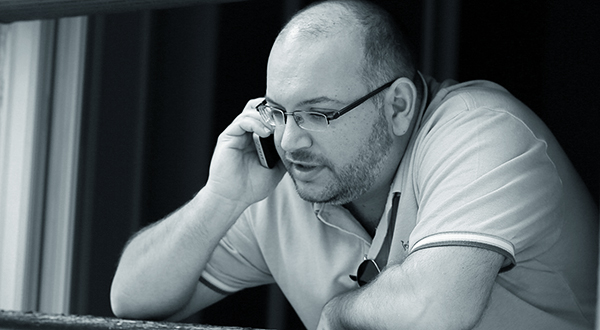News

The third hearing of Washington Post correspondent Jason Rezaian, who has been in detention in Iran since July 2014, was held in Tehran on July 13. No conclusion was reached and a new trial date has not been set.
According to Rezaian's brother, Ali Rezaian, authorities informed the family's lawyer, Leila Ahsan, that the closed trial would resume.
Two hearings have been held in his trial on May 26 and June 8, 2015. He is charged with a number of offences, including espionage. Rezaian, who has declared his innocence, could face up to 20 years in prison. The latest hearing coincides with what negotiators hope will be the final stages of nuclear talks in Vienna.
Following the hearing, the executive editor of the Washington Post, Martin Baron, issued a new statement, calling for the immediate release of Rezaian.
In the May hearing, a representative for the prosecution asked Rezaian to respond to the charges against him. The defense was presented to Judge Salavati, who presides over Branch 15 of the Revolutionary Court, after it was translated.
Rezaian, his wife Yeganeh Salehi, and two photojournalists were arrested and detained in July 2014 in Tehranwith. According to the Islamic Republic News Agency, trials for Salehi and a photojournalist, also got underway in May. None of the trials were open to the public.
In an exclusive interview with EuroNews in November 2014, Mohammad-Javad Larijani, secretary of the Iranian Judiciary’s High Council for Human Rights, said that Rezaian would soon been pardoned and released. Regarding the charges against him and the case’s progress, he told the news site, “I’m not in a position to judge, I’m just reporting that security officials filed charges against him that he was involved in activities that went beyond journalism.” When pressed for clarity, he added that they were “activities that breach the security of the state.”
On January 14, 2015, Iran's official Islamic Republic News Agency said Rezaian had been charged and would be tried in a Revolutionary Court. At the time, authorities did not outline the charges against him or say when the trial would begin. Tehran’s Attorney-General Abbas Jafari said investigations had been completed. Rezaian spent close to five months in solitary confinement.
Authorities formally charged Rezaian with espionage and three further offences, all of them serious, on April 20, 2015. He met with his lawyer, Leilah Ahsan, for the first time since his arrest on the same day. Martin Baron, the Washington Post’s executive director, condemned the charges against Rezaian.
In May 2015, Foreign Minister Mohammad Javad Zarif told US journalist and talkshow host Charlie Rose that Iran do not jail journalists, leading to a rush of criticism on social media and throughout the international journalism community.
Read more about Jason Rezaian on his profile.